| Query about disease or health conditions: |
| • You can search by disease, disorder, and symptoms for overall concept of the health condition and relevant discomfort, and existing probiotics for treatment. Below you can find a demonstration using autism as example (Fig. 2). |
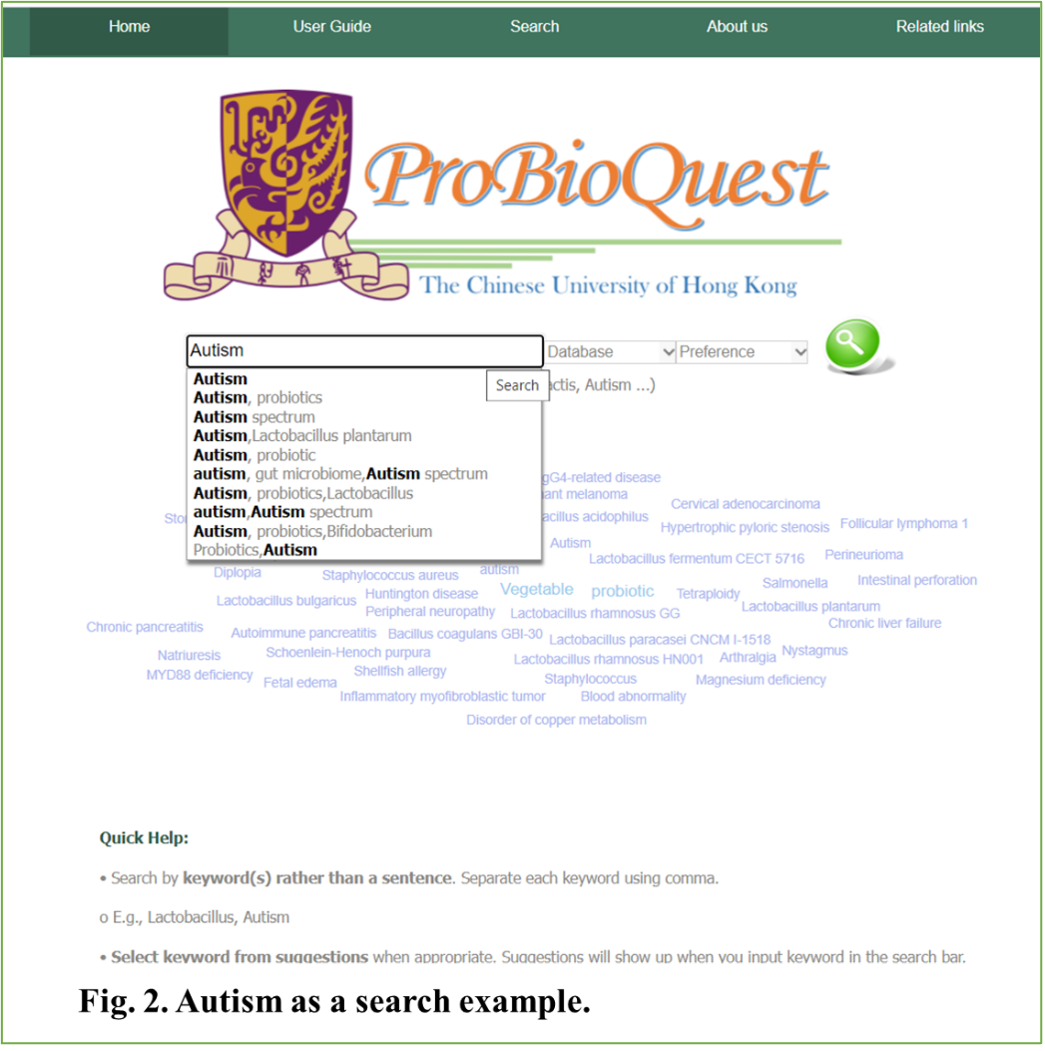
|
| • Example questions: “Is there any conditions commonly experienced by Autism patients?”, “Could probiotics relieve autism?” |
| • Search of “Autism” returns 2252 articles (Fig. 3). You may obtain clearer understanding towards autism by reading the articles. |
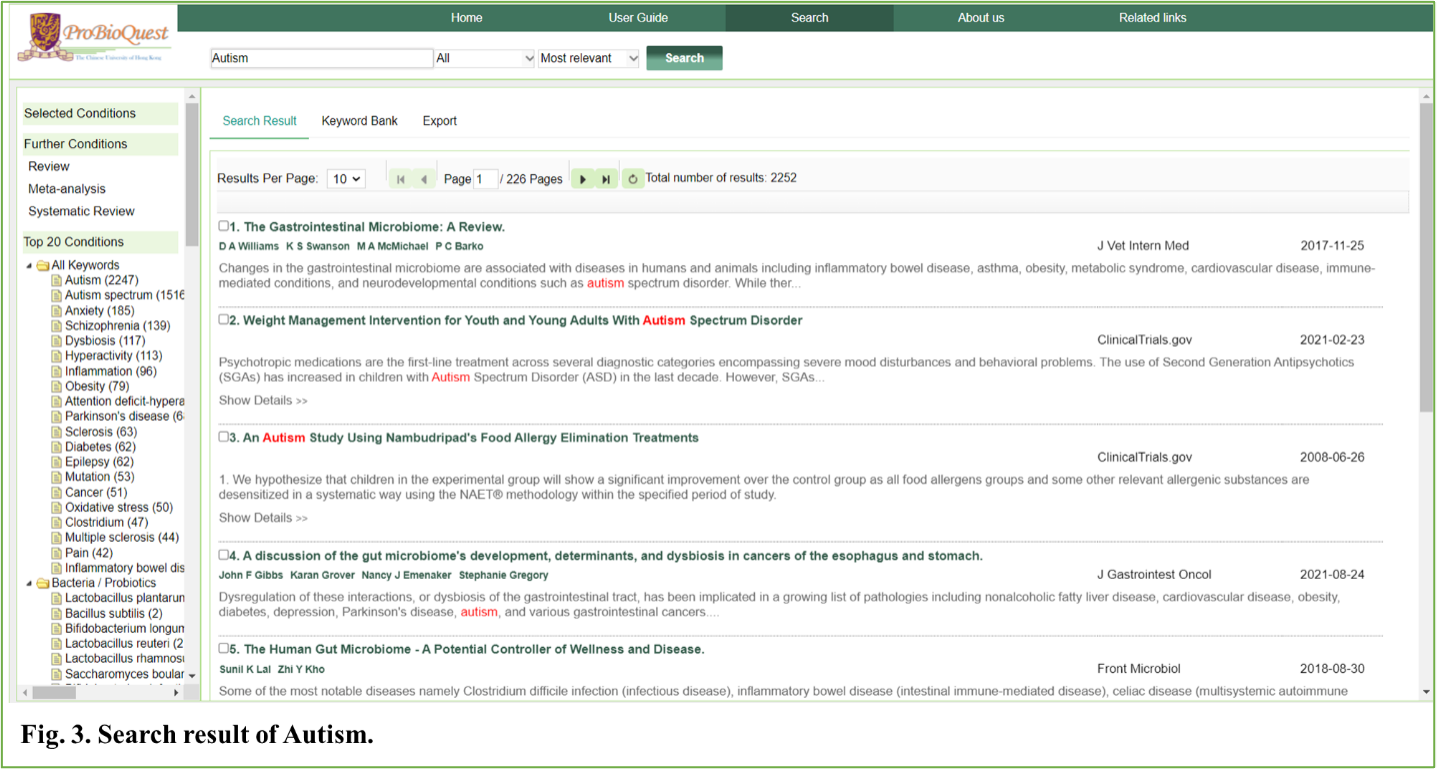
|
| • Keyword Bank tab gives you overall concept that autism is commonly discussed with other conditions like anxiety, schizophrenia, dysbiosis and hyperactivity (Fig. 4). |
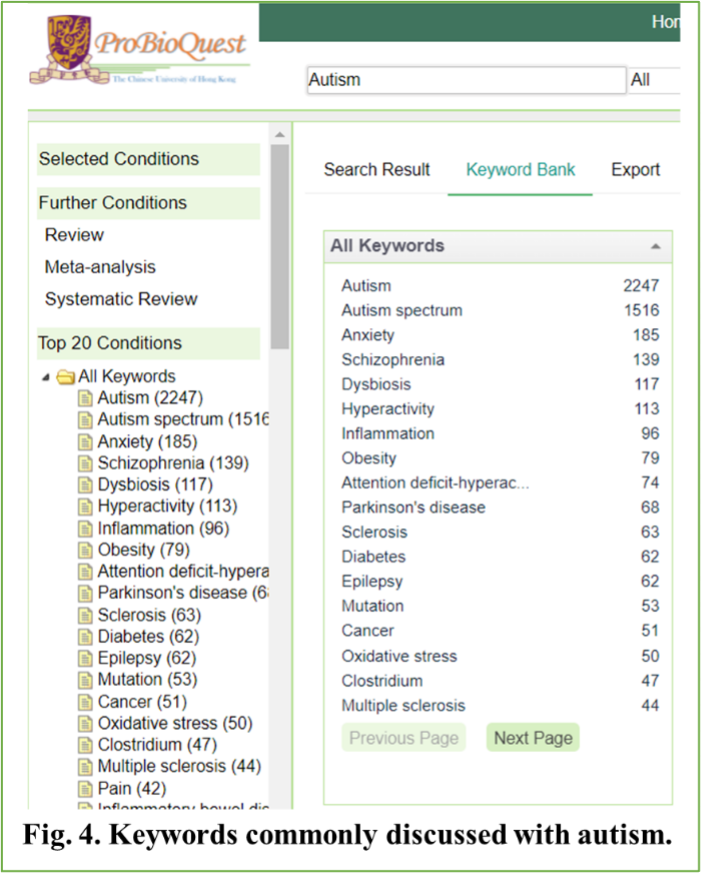
|
| • If you are interested in finding probiotics beneficial to autism patients, you may check keyword category Bacteria / Probiotics. Potential probiotics target is rapidly narrowed down to 8 species. Top species found is Lactobacillus plantarum. It can be linked out for its related taxonomy and strain information like culture conditions (Fig. 5) |
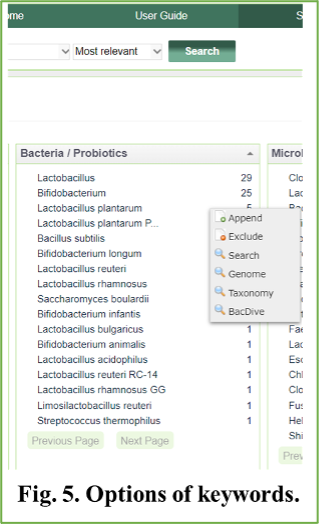
|
| • By appending Lactobacillus plantarum to the search, a specific strain and clinical trial on the strain show up (Fig. 6). Its potential in relieving autism can be further evaluated. You can link out to search for additional information, such as related drugs on Drugs.com, on the left scroll bar (Fig. 7) |
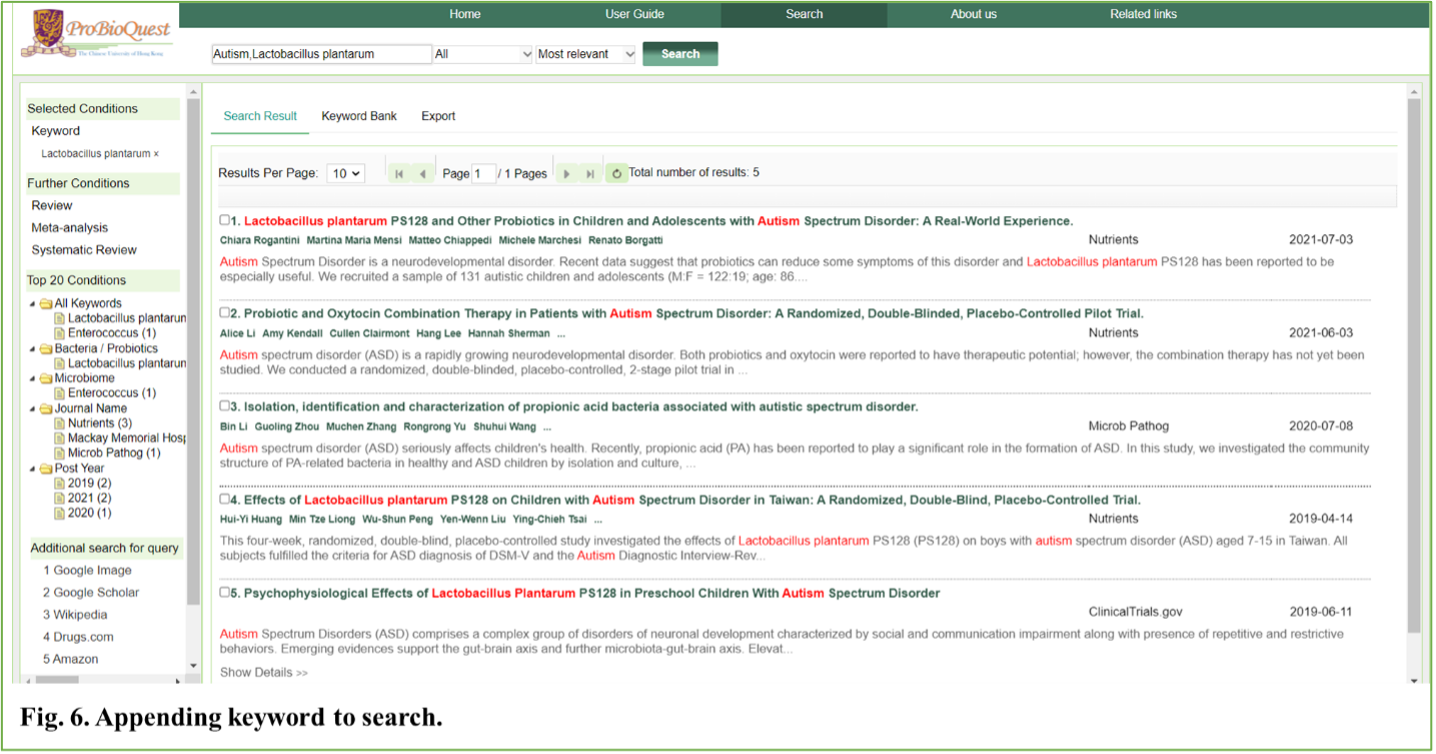
|
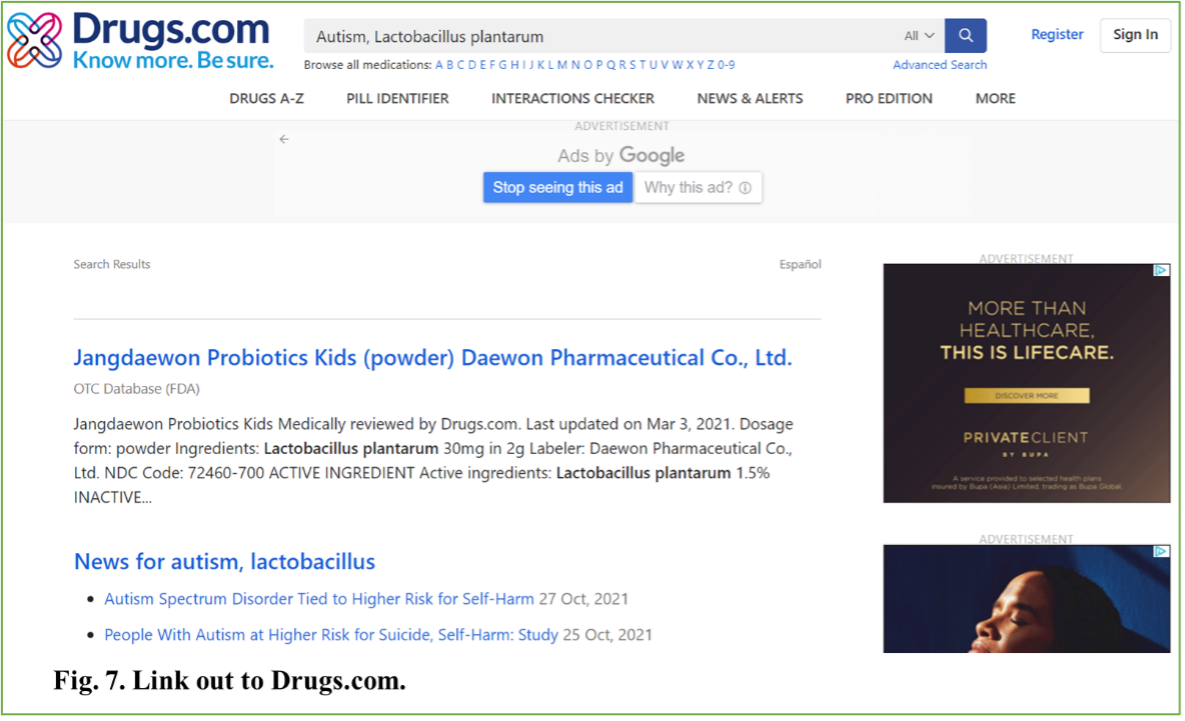
|
| Query about probiotics: |
| • You can search by bacteria, probiotics, microbiome for potential health impact, related taxonomy, and strain information like culture conditions. Below you can find a demonstration using Bifidobacterium lactis as example (Fig. 8). |
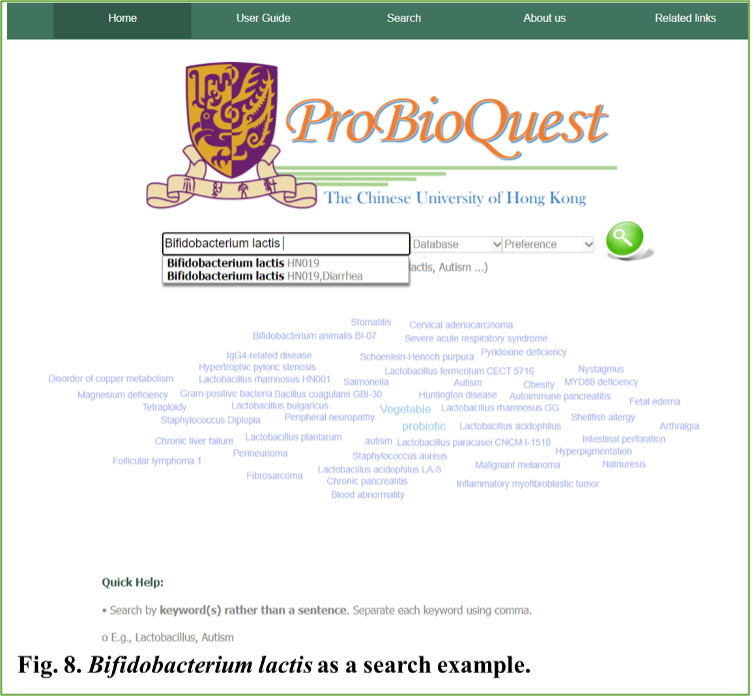
|
| • Example questions: “Is Bifidobacterium lactis well established for safe consumption?”, “What health conditions and bacteria are closely related to Bifidobacterium lactis?” |
| • Search of “Bifidobacterium lactis” returns 424 articles (Fig. 9). You may obtain clearer understanding towards Bifidobacterium lactis by reading the articles. For safety issue, you can select Clinical Trials from search bar. |
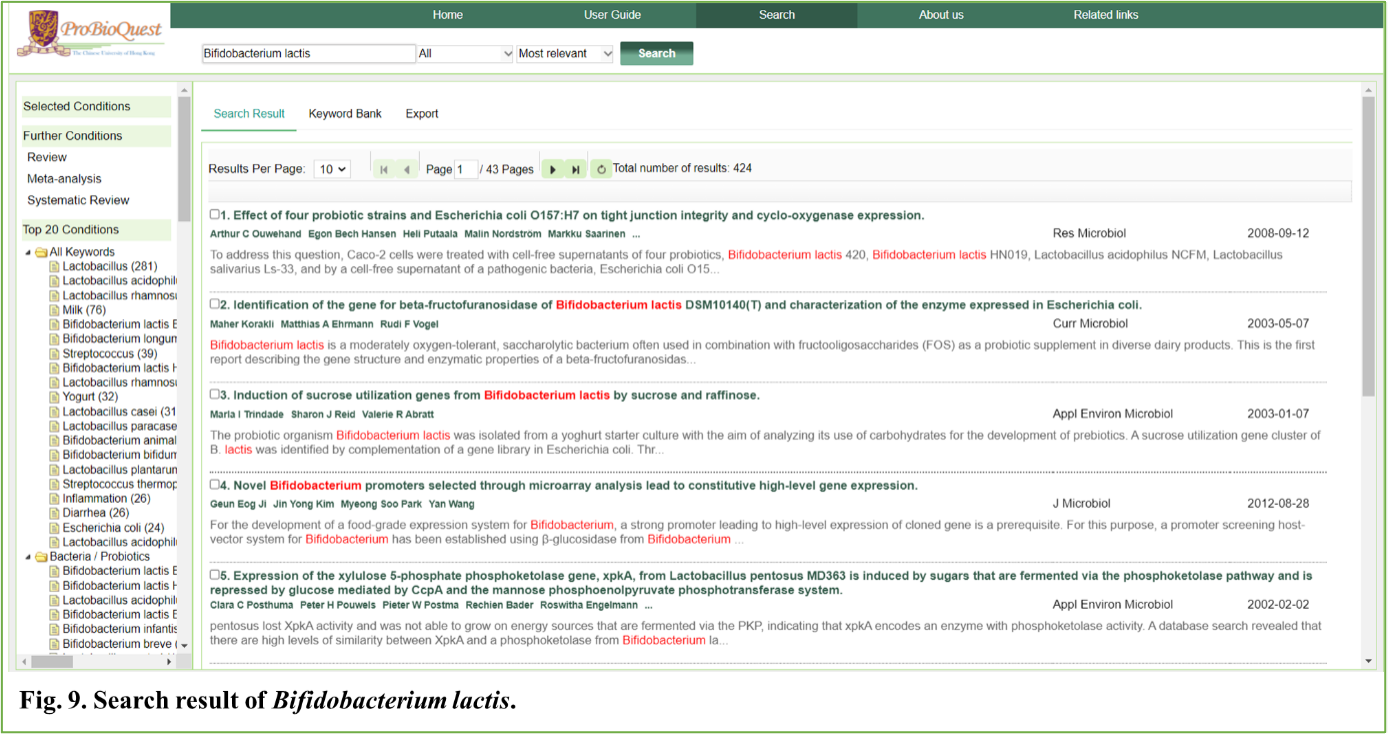
|
| • Keyword Bank tab gives you overall concept that Bifidobacterium lactis is commonly discussed with health conditions like inflammation, diarrhea, irritable bowel syndrome and constipation (Fig. 10) |
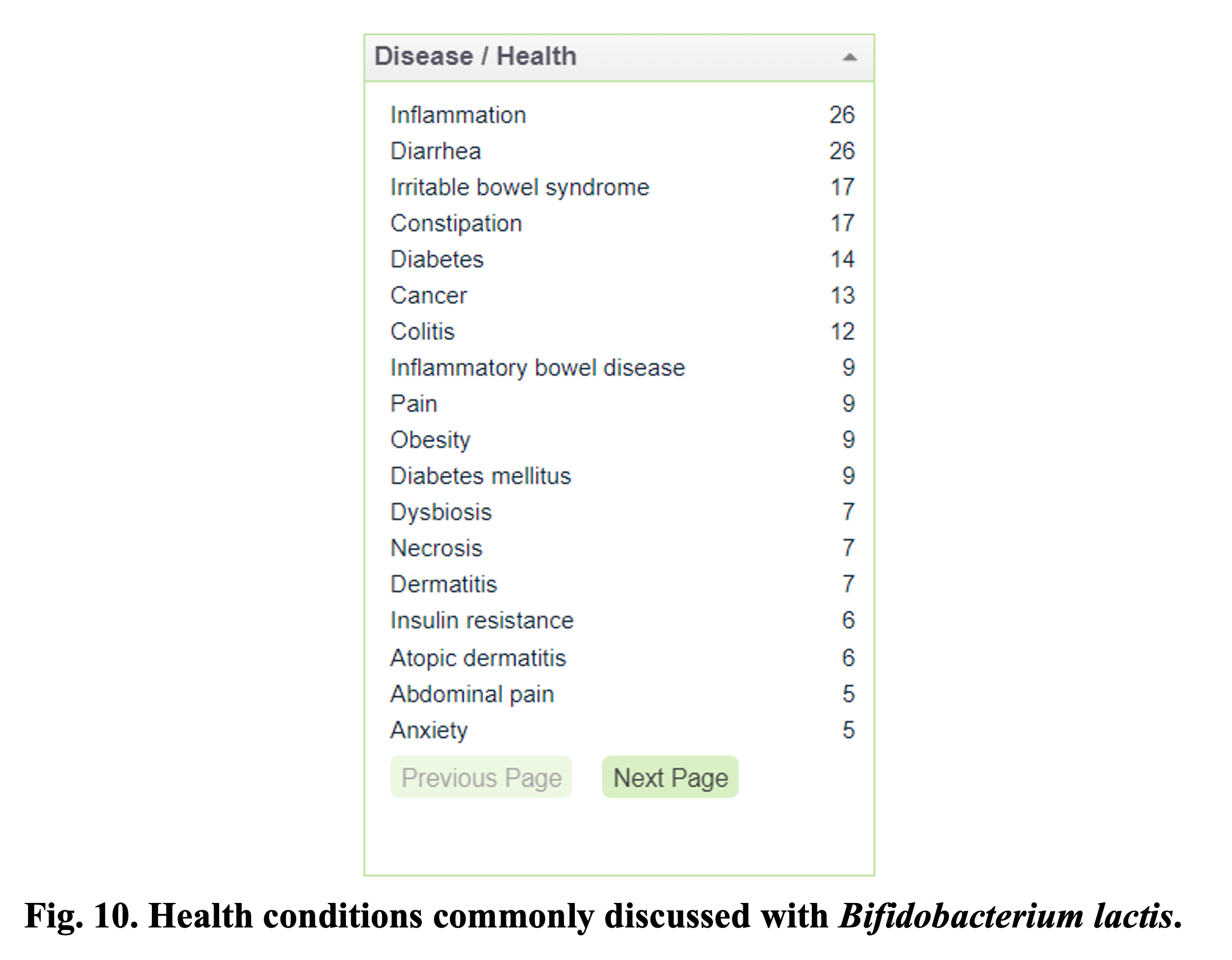
|
| • If you are interested in developing probiotics product, you can find from category Bacteria / Probiotics in Keyword Bank that Lactobacillus acidophilus is the most co-discussed probiotics with Bifidobacterium lactis (Fig. 11). |
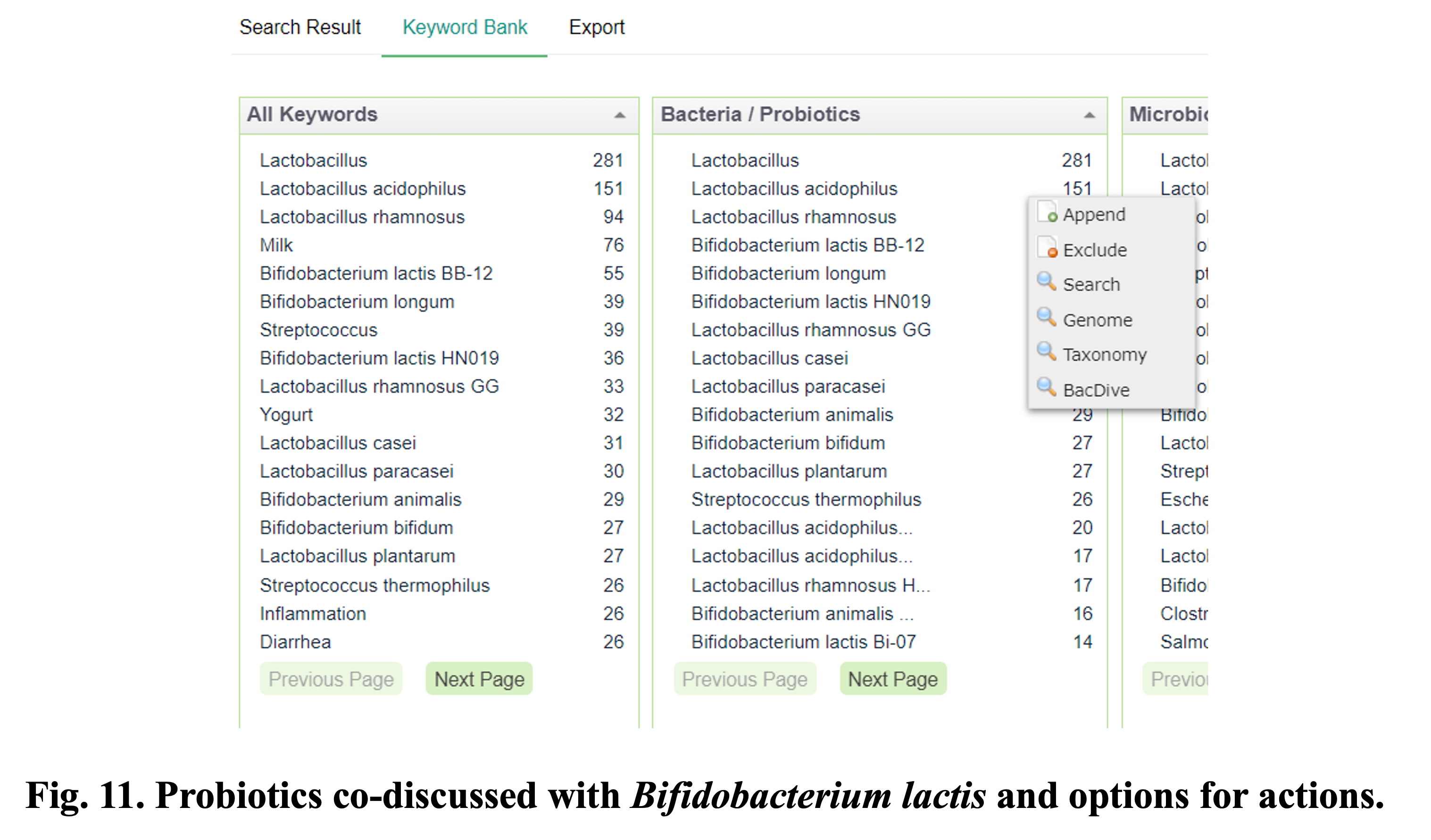
|
| • You can append Lactobacillus acidophilus to the search (Fig. 12) or link out for its related taxonomy and strain information like culture conditions on BacDive (Fig. 13). |
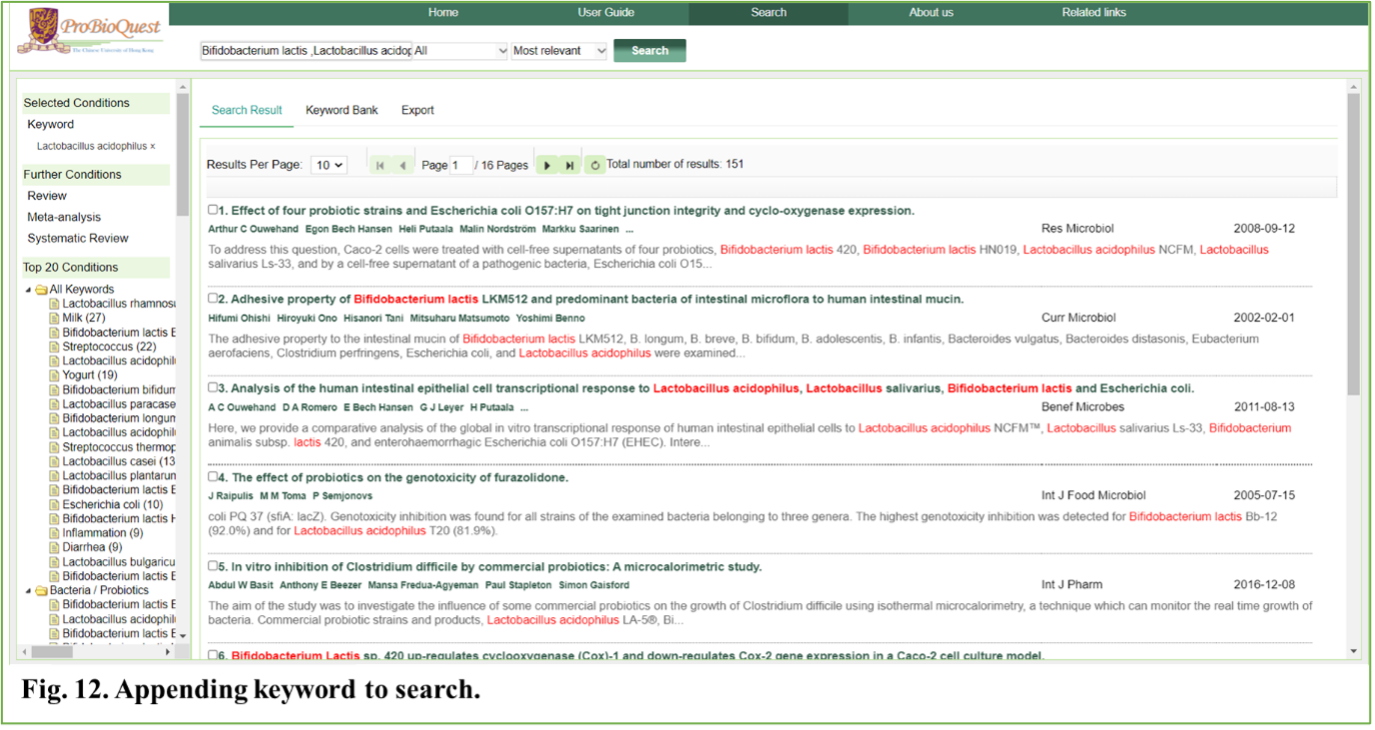
|
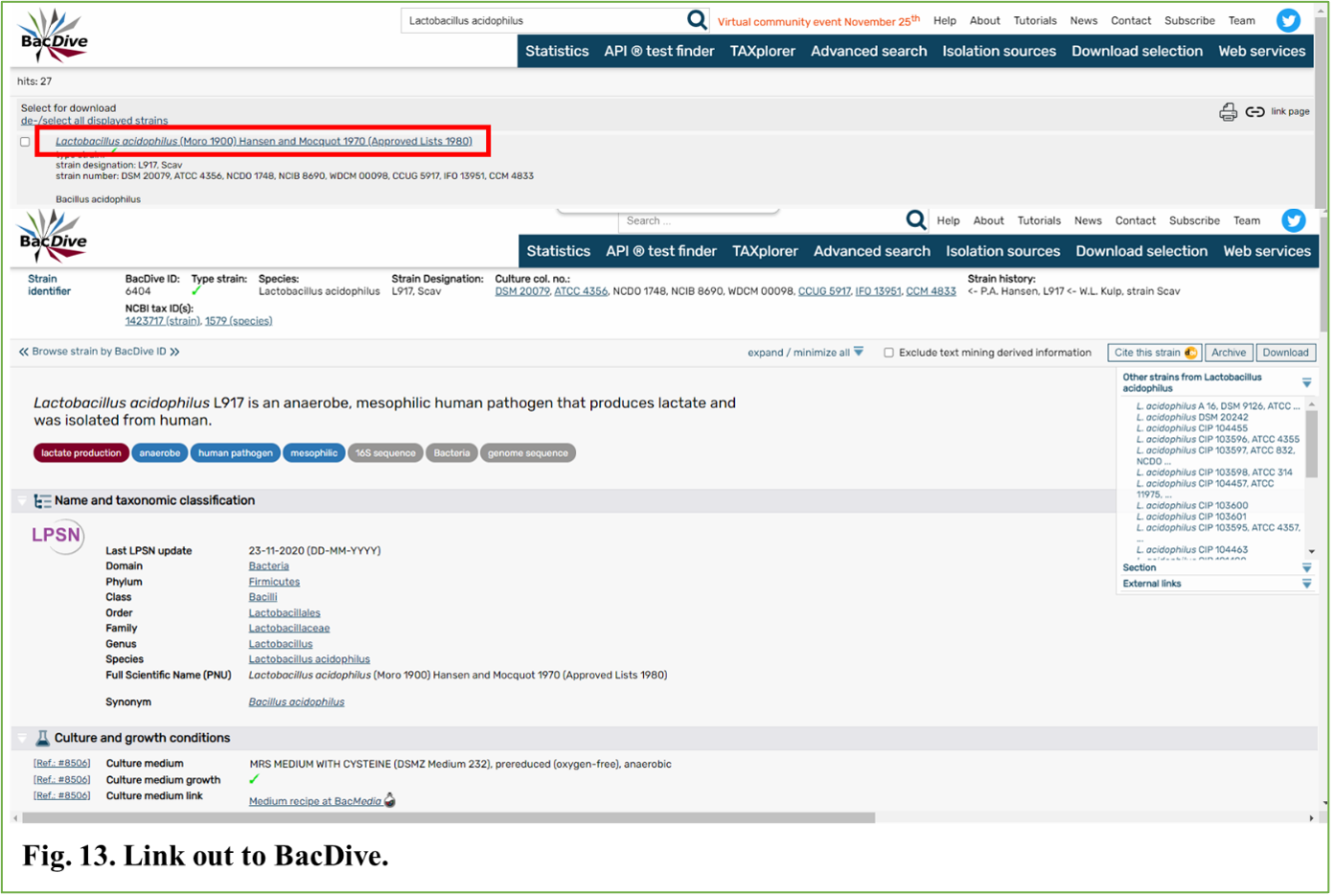
|
| • You can export search results in Export tab or link out for additional information on Drugs.com, Amazon or more, on the left scroll bar (Fig. 14). |
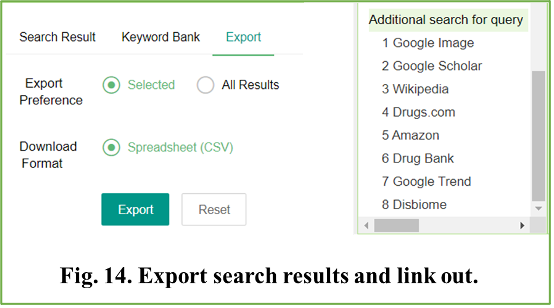
|
| For video guide, please visit here. |















